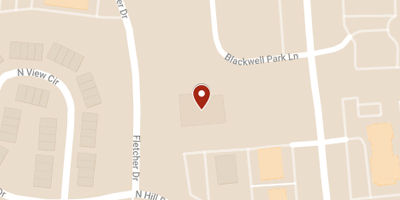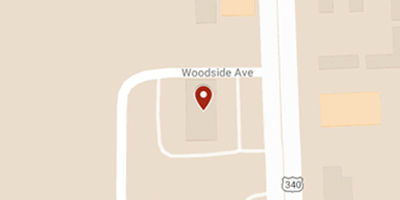.jpeg) We all know that insurance companies are in business to make money. They aren’t run for the public good, nor are they non-profit companies. We expect them to make money in order to keep their business going and keep drivers insured. However, when we pay good money for insurance policies, we expect the company to come through for us when we need them. After all, we wouldn’t be sending them money every month if we didn’t believe that they’d take care of us when we’re injured.
We all know that insurance companies are in business to make money. They aren’t run for the public good, nor are they non-profit companies. We expect them to make money in order to keep their business going and keep drivers insured. However, when we pay good money for insurance policies, we expect the company to come through for us when we need them. After all, we wouldn’t be sending them money every month if we didn’t believe that they’d take care of us when we’re injured.
The unfortunate reality is that many companies like Allstate, the nation’s second-largest insurance company, have become so focused on their bottom line that they seem to have forgotten what they are all about. If you charge people for providing insurance, then you have an obligation to pay out on claims when they are brought to you. We certainly expect insurance companies to do their due diligence and make sure they aren’t being taken advantage of, but we don’t expect them to use intimidation and delay tactics to get rid of customers with legitimate claims.
A Laser-like Focus on Profit
If you’re a shareholder, you want the company you own a part of to make lots of money. However, if you’re a consumer, you’re more interested in getting good value for your dollar and actually receiving quality goods or services in exchange for your hard-earned money. If you’re an Allstate shareholder you might be happy to know that they are all about making money. On the other hand, Allstate policyholders—especially those who have tried to file a claim—are finding out the flip side of a company’s drive to bring home the cash.
Investigations in recent years have detailed Allstate's practice of using delay tactics to keep profits high and payouts low. Think about it—what is the best way to make money if you’re in the insurance business? Simple—sell as many insurance policies as possible for a great price, then do everything you can to avoid paying out on claims.
Basically what happens is this: Allstate does everything it can to force policyholders to accept reduced cash payouts, or it stalls and drags out the case in court—something many people just don’t have the time or resources to do. Effectively this means that many claimants with legitimate needs aren’t given enough money to cover their repairs and the cost of their injuries, and they’re made to feel like they’re a criminal instead of a victim.
The One-Two Claim Knockout Punch
In order to maximize profits, Allstate first makes use of a computerized claim system that allows them to quickly evaluate a claim and determine how much an injury is worth. While technology like this is nearly unavoidable in the insurance industry, what’s troubling is that this computer program has allowed Allstate to pay 20% less in some markets than they used to for the same injuries.
Once an injury has been assigned a low dollar value, Allstate then delivers the second blow to the claimant. They push their policyholders to accept a quick payout, all the while being discouraged from speaking with their own lawyer. If the policyholder refuses or wants to contact a lawyer, Allstate attorneys will drag out litigation and put up every roadblock to negotiation they can think of—in fact, that is what they are trained to do.
Because few claimants have the time or the resources for a protracted court battle, this practice has been wildly successful for Allstate.
Evolution of an Adversarial Claims Process
How did Allstate become so focused on profit, to the detriment of its policyholders? In the mid-’90s, they hired consulting firm McKinsey & Co. to help overhaul their claims process and look for ways to save money, according to information from depositions, internal company documents, and transcripts posted to Allstate’s own website in response to a Florida appeals court ruling. Below are some of the findings from an intense review of Allstate documents several years ago:
- One consultant described the new claims process as a “Zero Sum Economic Game. Allstate gains ... others must lose.”
- Policyholders who balk at accepting settlements should be handled with “boxing gloves.”
- If a policyholder retains a lawyer, company attorneys are to align themselves and “sit and wait.”
- The ability of local claims agents to decide the value of a claim was removed when the new computer claims system called Colossus was rolled out, which reduced average payouts for bodily injury by 20%.
- Consultants claimed that the new software was an attempt at "establishing a new fair market value" for injuries, which is a fancy way of saying they found a way to justify paying less money to policyholders.
- Allstate doubled the number of lawyers they hired and took more claims to court than ever before.
- Minor-impact accident claims were targeted and treated as suspected fraud cases. To reduce payouts on such small claims, Allstate offered small payments or refused the claim outright —the intent being to so frustrate the claimant that they’d either accept the small settlement or drop the case entirely.
- Quick settlement offers reduced the number of policyholders who hired lawyers by 20% in some states.
- Consultants claimed that all the changes made to Allstate’s claims program could save $1.1 billion per year, and that “shareholders will notice.”
The Crackdown Pays Off
Allstate claims that it did not adopt all of McKinsey’s strategies, and was honestly focused on reducing fraudulent claims and ensuring that payout amounts were fair and made quickly. However, regulators in several states have been concerned about Allstate’s practices, and Virginia regulators wrote in 1999 that “the method the company chose to reduce overpayments has led to violations of the Unfair Claims Settlement Practices Act."
Regardless of what regulators and customers think, the revamped claims system has been a boon for Allstate. The changes have allowed Allstate to report the largest profits of its 77-year history: In 2006 they recorded a profit of $4.9 billion. In 2007, the profit was $4.6 billion. So it seems that if you’re a shareholder, you’re in good hands with Allstate—but if you’re a policyholder, you should watch out for those boxing gloves.














